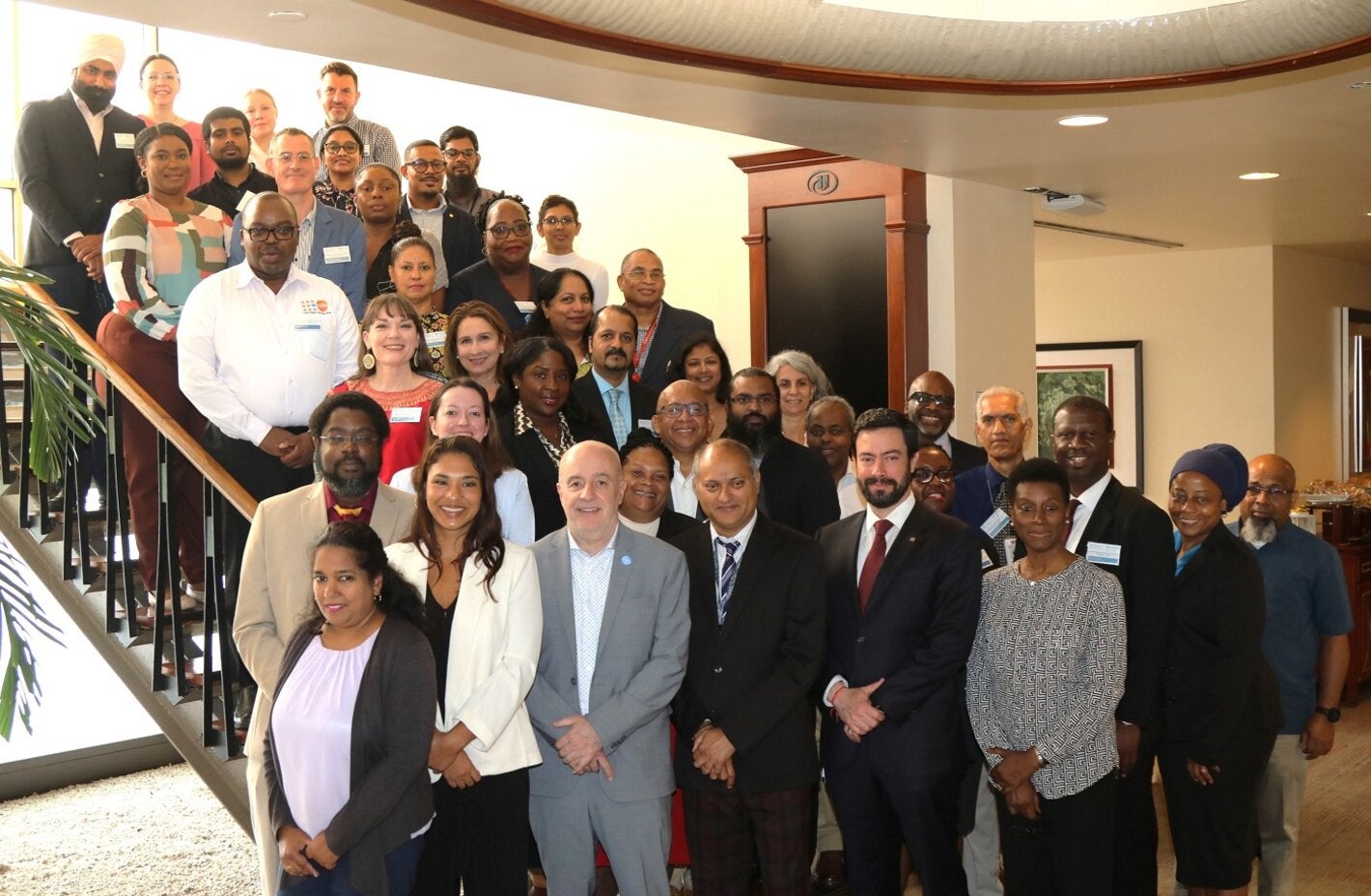
Port of Spain, Trinidad and Tobago, 2 April 2025 (PAHO/WHO) - On March 27-28, 2025, Port-of-Spain, Trinidad and Tobago, became the epicenter of a project aimed at modernizing civil registration and vital statistics (CRVS) systems across the English-speaking Caribbean. Organized by the Pan American regional office and the Trinidad and Tobago Country Office, the interagency workshop brought together key stakeholders to develop a comprehensive roadmap for accelerating the digital transformation of CRVS systems.
The workshop, supported by Bloomberg Philanthropies, attracted representatives from various institutions and agencies across the Caribbean, the University of Oslo, Netherlands and Vital Strategies, a global public health agency. The event kicked off with welcome remarks from Dr Gabriel Vivas Francesconi, the PAHO/WHO Representative for Trinidad and Tobago and the Dutch Caribbean Islands, and Dr Sebastian Garcia Saiso, Director of EIH, at PAHO Headquarters. Their words set the tone for two days of intense collaboration and innovative thinking.
Participants delved into the current status and challenges of CRVS in the Caribbean, with insights from the Caribbean Public Health Agency (CARPHA) highlighting the need for improved data quality and accessibility. The adoption of ICD-11, the global standard for mortality and morbidity statistics, was a focal point, with Katria Kontio from PAHO-HQ providing crucial updates on its implementation.
A series of group work sessions allowed attendees to discuss various aspects of CRVS digital transformation. These included findings from business process mapping of births and deaths data, an overview of the integration of DHIS2, and the formulation of legal frameworks to support digital CRVS systems.
The workshop also emphasized the importance of continuous training on ICD-11 and data quality monitoring, leveraging data science to gain vital statistics insights.
The collaborative efforts culminated in milestones and next steps for the development of an interagency roadmap to ensure a seamless transition from paper-based to digital systems.
A robust CRVS system enhances health outcomes, improves civil registration processes, provides more accurate vital statistics, supplies better data for decision-making, and supports the development of more effective health policies by facilitating effective government planning and resource allocation for health and wellbeing.
This landmark event marked a significant step towards a digitally transformed future for CRVS systems in the Caribbean, promising improved efficiency, interoperability, and high-quality data. The collaborative spirit and innovative strategies discussed during the workshop will undoubtedly pave the way for a brighter, more connected future.






